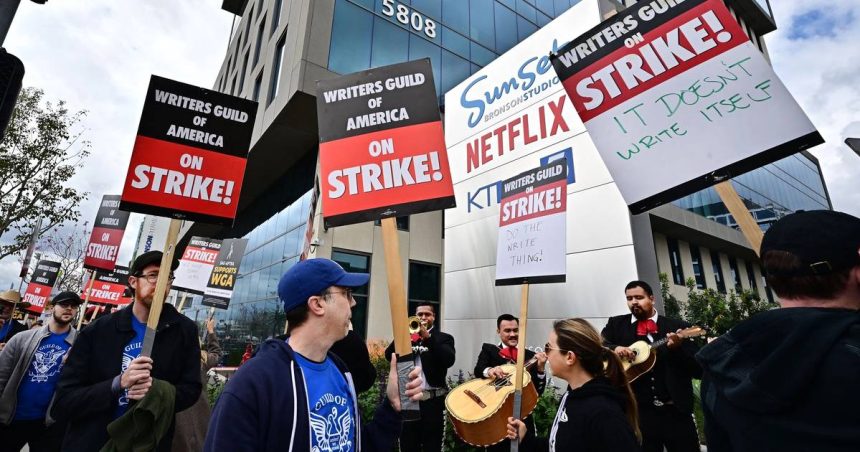In July, Disney CEO Bob Iger drew heat after he declared that the demands of striking writers and actors were “just not realistic.”
On Wednesday, during a quarterly earnings call, his message sounded very different.
“Nothing is more important to this company than its relationships with the creative community, and that includes actors, writers, animators, directors, and producers,” Iger said in prepared remarks. “I have deep respect and appreciation for all those who are vital to the extraordinary creative engine that drives this company and our industry. It is my fervent hope that we quickly find solutions to the issues that have kept us apart these past few months, and I am personally committed to working to achieve this result.”
As the writers’ strike of 2023 officially stretches past its hundredth day and the actors’ strike approaches the one-month mark, neither seems much closer to a deal as some talks are, after months of dragging, slated to resume today. In the last few weeks, media executives’ comments to analysts and investors have contained a message of earnestness and a commitment to striking a deal ASAP.
“We’re super committed to getting to an agreement as soon as possible—one that’s equitable and one that enables the industry and everybody in it to move forward into the future,” Netflix co-CEO Ted Sarandos told investors in July.
Other execs sang a similar tune. “Our partnership with the creative community is critical to the health of our industry, so we remain hopeful for a timely resolution, and we are committed to finding a path forward,” Paramount CEO Bob Bakish said this week, while Comcast president Michael Cavanagh shared a similar sentiment late last month: “We remain committed to reaching a fair deal as soon as possible so we can get back to doing what we do best, which is making great content together,” he said.
Get marketing news you’ll actually want to read
The email newsletter guaranteed to bring you the latest stories shaping the marketing and advertising world, like only the Brew can.
Warner Bros, Discovery CEO David Zaslav, whose aggressive cost-cutting measures and leadership decisions have attracted criticism, offered a verbal olive branch last week.
“We’re in the business of storytelling …and we cannot do any of that without the entirety of the creative community,” he said. “We’re hopeful that all sides will get back to the negotiating room soon and that these strikes get resolved in a way that the writers and actors feel they are fairly compensated and their efforts and contributions are fully valued.”
Put your money where your mouth is? The reality is that negotiations between the Alliance of Motion Picture and Television Producers (which represents the major studios including Netflix, Paramount, Warner Bros., and Comcast-owned Universal Pictures) have remained at an almost-complete standstill for months. Some industry reporting has suggested that the plan for some on the studio side is to financially grind down union members until they capitulate to studio demands, something that the AMPTP denied.
Last week, the AMPTP sat down with representatives from the Writers Guild but failed to reach an agreement to continue contract negotiations. Meanwhile, Fran Drescher, the president of the actors’ union SAG-AFTRA, said this week in a statement that the AMPTP has “not contacted us to resume talks.” On Thursday, entertainment business chronicler Matthew Belloni reported that the AMPTP planned to resume bargaining with the Writers Guild on Friday.
The timeline: Some media companies seem to be anticipating that the strikes will end sometime in the fall. At Warner Bros. Discovery, for example, the company’s modeling “assumes a return-to-work date in early September,” CFO Gunnar Wiedenfels told investors last week. In the meantime, WBD and Paramount reported additional free cash flow since productions are at a standstill. Warner Bros. Discovery said it saved around $100 million in the quarter due to the effects of the strikes.
Read the full article here










